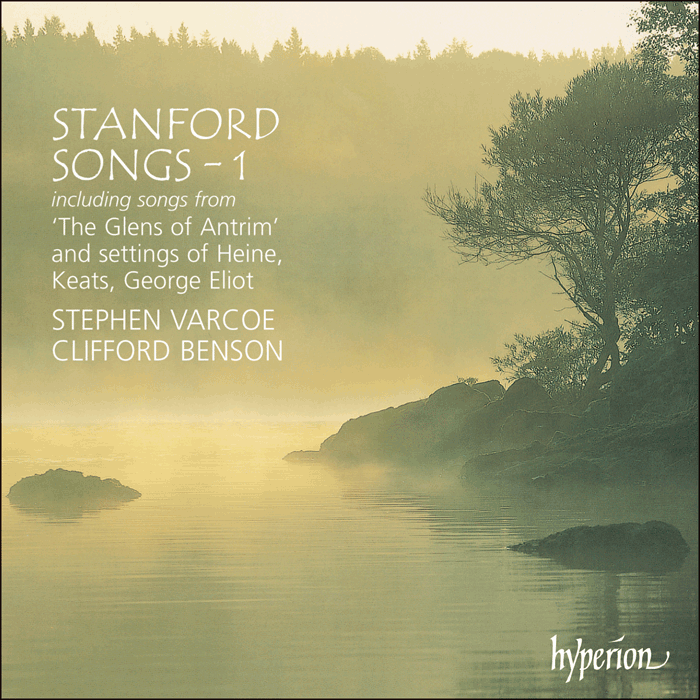Stanford: Songs, Vol. 1
Stephen Varcoe (baritone), Clifford Benson (piano)
CDA67123
Stanford declared: 'Song-writing is as miniature-painting. The scale is small, and everything must conform to that scale' (Interludes, Records and Reflections, 1922). Such a rigorous sense of focus depended, as Stanford saw it, on a well-defined hierarchy: the poem should always remain the principal consideration, governing all other artistic decisions.
Stanford's care for the voice and the vocal line sprang from his own natural lyrical impulse. Through access in his early years to the almost limitless font of melodic material in Thomas Moore's (mainly eighteenth-century) melodies and the collections of Petrie, Bunting and Joyce, he developed a profound love of traditional melody which remained a vital source of creativity throughout his life. Irish folksong informed much of Stanford's own melodic parlance, but more than that, it engendered a predisposition towards simplicity, a love of diatonicism and a desire for economy, facets which informed not only the lyrical dimension of Stanford's art but also his approach to harmony (in which the presence of a strong bass was imperative), texture and accompaniment.
The composer was almost certainly influential on pupils such as Vaughan Williams, Gurney and Howells and all lovers of song are sure to be entranced by these performances.

